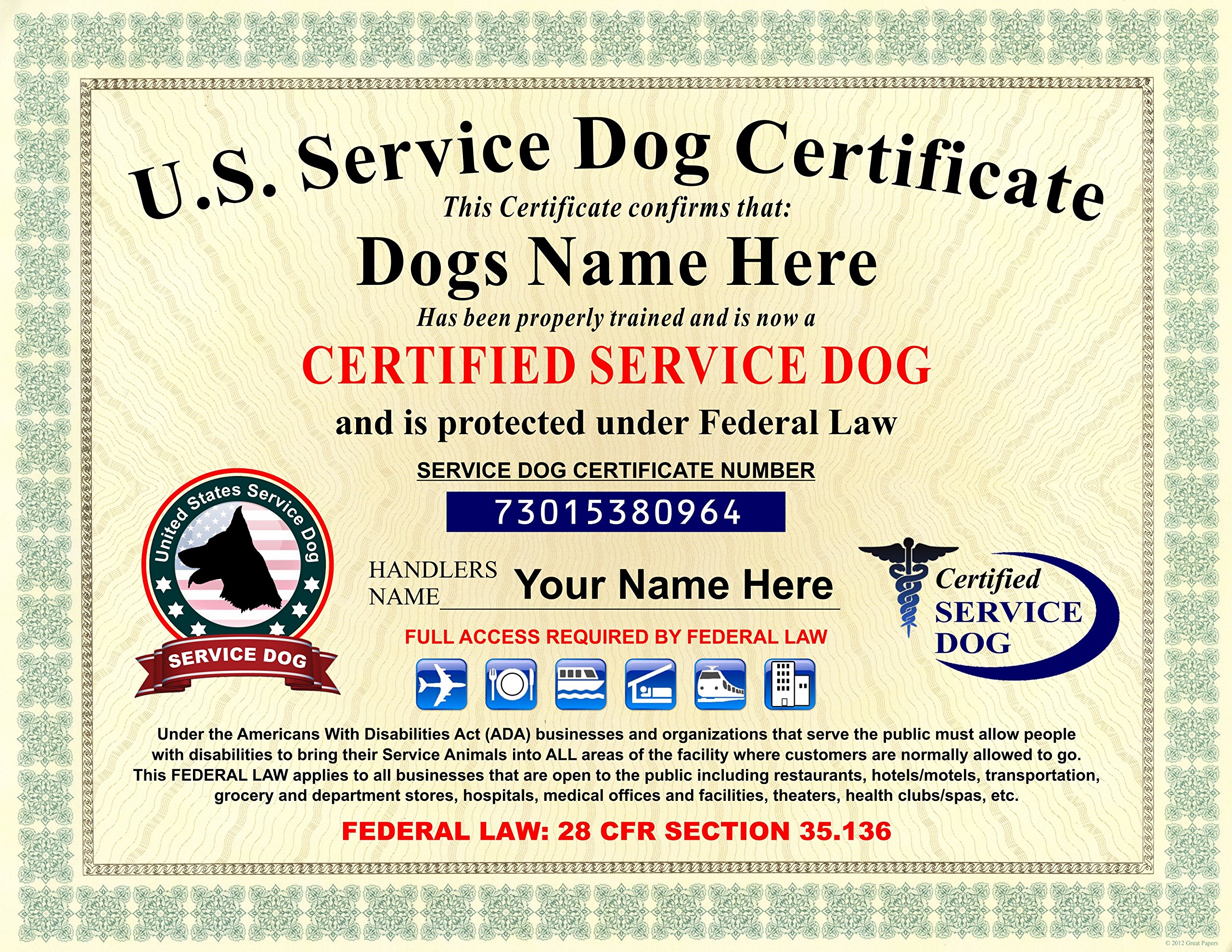Can You Request Service Dog Documentation?

When living in a community governed by an HOA (Homeowners Association), residents often wonder about the rights and regulations surrounding service dogs and Emotional Support Animals (ESAs). This blog post delves into the nuances of requesting documentation for these animals, ensuring that you understand the legalities and procedures involved.
Understanding Service Dogs and ESAs

Service dogs are trained to perform specific tasks for individuals with disabilities, making them legally recognized under the Americans with Disabilities Act (ADA). Emotional Support Animals, on the other hand, provide comfort and emotional support, and their recognition falls under different regulations like the Fair Housing Act (FHA) and the Air Carrier Access Act (ACAA).
Legal Framework

The legal landscape for service animals and ESAs is multifaceted:
- Americans with Disabilities Act (ADA): Focuses on service dogs and does not require documentation for public access.
- Fair Housing Act (FHA): Allows for reasonable accommodation for both service dogs and ESAs in housing.
- Air Carrier Access Act (ACAA): Regulates service animals on airplanes, with ESAs often requiring documentation for flights.
Requesting Documentation for Housing

If you are a resident in an HOA, here’s how you might request documentation for your service dog or ESA:
Service Dogs

Under the ADA:
- No documentation is legally required to prove that your dog is a service dog for access to public spaces.
- For housing, while HOAs cannot ask for specific documentation to prove disability or certification, they can ask if the dog is a service animal required due to a disability.
Emotional Support Animals

Under the FHA:
- HOAs can request reasonable documentation to verify the necessity of an ESA for an individual’s emotional health.
- This documentation often includes a letter from a licensed mental health professional stating the need for the ESA.
Steps to Request Documentation

If you need to request documentation for your ESA:
- Consult a Licensed Mental Health Professional: Obtain a letter specifying your need for an ESA for your condition.
- Notify the HOA: Write a letter or email to your HOA board with the necessary documentation.
- Provide Sufficient Information: Ensure the letter from the professional includes:
- Professional’s credentials and contact information.
- Details on how the ESA alleviates or mitigates the disability effects.
- A description of the disability or symptoms.
- Request Accommodation: State clearly what accommodation you seek, e.g., waiver of pet fees or restrictions.
🗒️ Note: Your ESA's behavior and impact on other residents might still be subject to HOA rules concerning noise and cleanliness.
Managing Potential Conflicts

Here are some tips to navigate potential disputes with your HOA:
- Educate: Inform your HOA about the legal rights of individuals with disabilities under FHA.
- Dialogue: Open a conversation to address concerns and potential misunderstandings.
- Documentation: Keep thorough records of all communications and documentation exchanged.
- Legal Advice: If the HOA denies your request without due cause, seek legal counsel.
Pet Policies and ESAs

HOAs typically have pet policies in place:
| Policy Aspect | Service Dogs/ESAs | Regular Pets |
|---|---|---|
| Documentation Requirement | Yes (for ESAs), No (for service dogs) | Optional |
| Pet Fees | Exempt | Commonly Required |
| Breed or Size Restrictions | No | Possible |
| Pet Deposit | Not Applicable | Possible |

Final Thoughts

Requesting documentation for your service dog or ESA is an important step in ensuring your rights are protected within an HOA community. Understanding the legal framework, knowing your rights, and approaching the process with clear communication can lead to a smoother experience for both you and your fellow residents. Remember, while HOAs must provide reasonable accommodations, they also have the right to maintain community standards, so maintaining open and constructive dialogue is key.
What is the difference between a service dog and an ESA?

+
A service dog is trained to perform specific tasks for a person with a disability, whereas an Emotional Support Animal provides companionship and emotional support to alleviate symptoms of mental or psychological conditions.
Can an HOA refuse an ESA or service dog?

+
An HOA cannot refuse a service dog or ESA if proper documentation is provided. However, they can address issues related to the animal’s behavior or if the accommodation places an undue burden on the community.
What if my ESA or service dog is disruptive?

+
The HOA can enforce rules regarding noise, cleanliness, and general behavior to ensure that the animal does not unduly disturb other residents, even if it is legally recognized as an ESA or service animal.
Understanding the rights and responsibilities related to service animals and ESAs in an HOA setting is crucial for fostering a harmonious living environment. By adhering to the proper procedures and maintaining open communication, residents with these animals can enjoy their accommodations while contributing positively to the community’s overall well-being.



